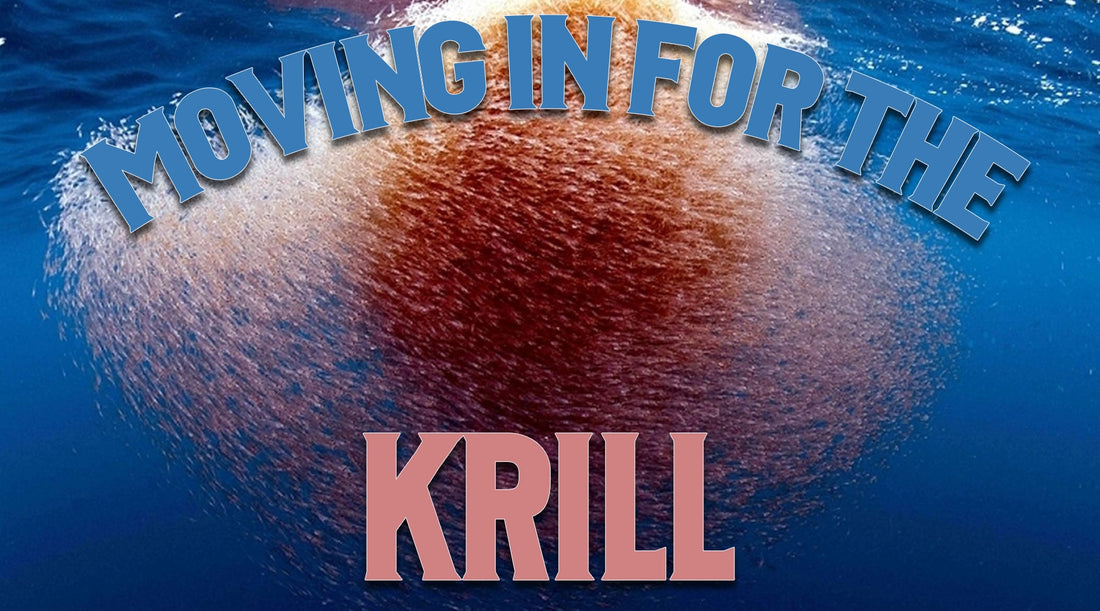Despite common nutritional myths, there are some fats that are good for you. Omega-3 fatty acids are critical to human health. Omega-3s are a group of fatty acids that have a double bond between the 3rd and 4th carbon atoms in the chain that comprises the backbone of the molecule--hence the name(1). Unfortunately, most of us don’t get enough omega-3’s through our diet, so supplements are a daily habit for many people. While fish oil has held the top spot for a while, a much better option is gaining popularity, with good reason.
Omega 3’s are present in cell membranes and support anti-inflammatory activity. Two of the most important Omega-3s are eicosapentaenoic acid (EPA) anddocosahexaenoic acid (DHA), both of which are considered by many to be among the “essential fatty acids” that are key for life. As essential fatty acids, EPA and DHA serve a variety of functions throughout the body at all stages of life.

Both EPA and DHA are necessary for proper fetal development. In fact, EPA+DHA supplementation during pregnancy is strongly associated with longer gestation time and greater concentrations of both molecules in fetal tissue. This means that a pregnancy is more likely to be carried to full term, and the newborn will have a boost of necessary fatty acids upon birth.
EPA and DHA have also been shown to decrease expression of pro-inflammatory genes, which can have numerous benefits. These might include some level of protection from the progression of neurodegenerative diseases like Alzheimer’s disease, although this has been primarily studied in animal models of Alzheimer’s. EPA and DHA offer cardiovascular benefits as well, primarily through improving the function of the cells that line our blood vessels. In fact, research has shown that patients who supplement with EPA+DHA over time are less likely to suffer a cardiac event(2).

EPA and DHA are both highly important, and can be synthesized in the body through a few chemical pathways, but these pathways are inefficient, meaning we should get our omega-3’s through diet or supplementation. Fish oil is currently the most common way to supplement Omega-3s in a diet. However, krill oil is becoming the preferred supplement, for a number of reasons. First, krill oil has more bioavailable stores of EPA and DHA compared to fish oil. Fish oil tends to have EPA and DHA in the form of triglycerides, whereas krill store their EPA and DHA as phospholipid fatty acids, which are more easily absorbed in humans. A 2015 study examined the bioavailability differences between krill oil and fish oil. Different groups of participants were given either krill oil or fish oil, and multiple parameters were tested. Overall, krill oil performed better than fish oil. The krill oil groups in general had higher blood plasma levels of EPA+DHA as well as a shorter time to full ingestion of EPA alone(3).

Perhaps more important than bioavailability characteristics are the sustainable fishing practices for the production of krill oil. Fish oil production has long led to crushing commercial catch rates of fish, destroying fisheries and fish stocks. With this in mind, the commercial production of krill has been founded in far more sustainable practices. This is particularly important as krill oil becomes more popular. The Marine Stewardship Council reported a total krill catch of almost 400,000 tons in 2019, which is the second largest catch on record. The Marine Stewardship Council, or MSC, is a non-profit that works to certify fishery practices of commercial enterprises.
The MSC uses a three-pillar sustainability profile when assessing fishing practices. Sustainable fish stocks, minimising environmental impact, and effective fisheries management. This translates into responsible strategies by fishing companies, including precaution when considering fishing strategies and reduction of by-catch--including non-target species of fish in a commercial catch4. All of this forethought goes into the krill oil sourced for our new Arctic Advantage krill oil supplement.
Krill oil is an improved way to regularly supplement Omega-3s from a personal and a global perspective. Increased bioavailability of key nutrients and increased care given to the fisheries that provide the krill combine to make a product that can be better enjoyed no matter what your priorities are.

Works Cited
1. Cholewski, Mateusz, et al. “A Comprehensive Review of Chemistry, Sources and Bioavailability of Omega-3 Fatty Acids.” Nutrients, vol. 10, no. 11, 4 Nov. 2018, p. 1662, 10.3390/nu10111662.
2. Swanson, Danielle, et al. “Omega-3 Fatty Acids EPA and DHA: Health Benefits throughout Life.” Advances in Nutrition, vol. 3, no. 1, 2012, pp. 1–7, www.ncbi.nlm.nih.gov/pmc/articles/PMC3262608/, 10.3945/an.111.000893.
3. Köhler, Anton, et al. “Bioavailability of Fatty Acids from Krill Oil, Krill Meal and Fish Oil in Healthy Subjects–a Randomized, Single-Dose, Cross-over Trial.” Lipids in Health and Disease, vol. 14, no. 1, 15 Mar. 2015, 10.1186/s12944-015-0015-4. Accessed 12 Aug. 2019.
4. Marine Stewardship Council. “MSC Certified Antarctic Krill | Marine Stewardship Council.” Www.msc.org, www.msc.org/uk/msc-certified-antarctic-krill. Accessed 29 Mar. 2021.

